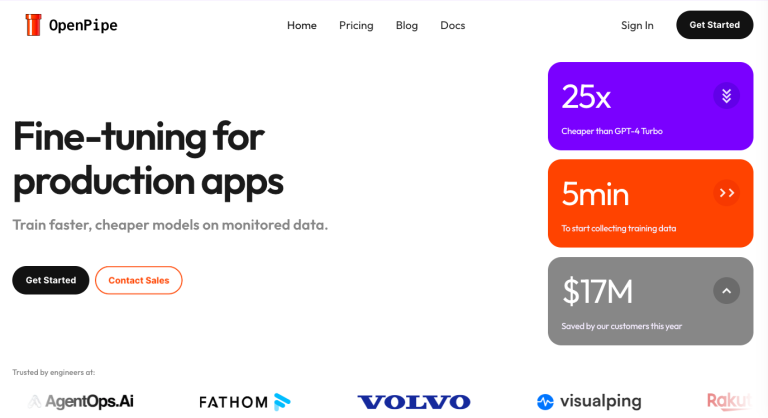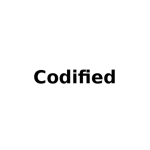TL;DR: OpenPipe is a developer tool that fine-tunes large language models (LLMs) to reduce costs and improve performance, making custom AI more accessible.
OpenPipe is an SDK that simplifies the fine-tuning of LLMs by capturing existing prompt-completion pairs and creating efficient, cost-effective models. It is ideal for developers needing tailored AI solutions for specific use cases without the high costs associated with general-purpose models like GPT-3.5 or GPT-4.
Who is OpenPipe For
OpenPipe is designed for a range of users needing efficient and cost-effective AI fine-tuning. Key users include:
- Software Developers: Developers looking to integrate customized AI models into their applications.
- AI Researchers: Researchers needing specific model adjustments for experiments.
- Businesses: Companies looking to reduce costs while maintaining high-performance AI solutions.
- Startups: New companies requiring budget-friendly AI tools for product development.
- Data Scientists: Professionals fine-tuning models for specific data-related tasks.
Key Features of OpenPipe
- Cost Reduction: Fine-tuned models are significantly cheaper to run compared to general-purpose LLMs.
- High Performance: Fine-tuned models can achieve performance levels close to GPT-4 at a fraction of the cost.
- Easy Integration: Simple SDK for integrating fine-tuned models into existing applications.
- Automation: Automates the collection of prompt-completion pairs and model training.
- Custom Evaluations: Built-in evaluation framework to compare fine-tuned models with baseline models.
How to Use OpenPipe
- Sign up on the OpenPipe website.
- Install the OpenPipe SDK and integrate it with your existing application.
- Collect prompt-completion pairs using the SDK.
- Use the OpenPipe UI to initiate a training job with the collected data.
- Deploy the fine-tuned model via OpenPipe or self-host it.
- Update your application to use the new model seamlessly.
Key Use Cases for OpenPipe
- Custom AI Applications: Develop AI models tailored to specific business needs.
- Cost-Effective AI Solutions: Reduce operational costs by using fine-tuned models.
- Performance Optimization: Improve model performance for specialized tasks.
- Data-Specific Training: Train models on specific datasets for better accuracy.
- Rapid Prototyping: Quickly prototype AI features with lower costs.






































